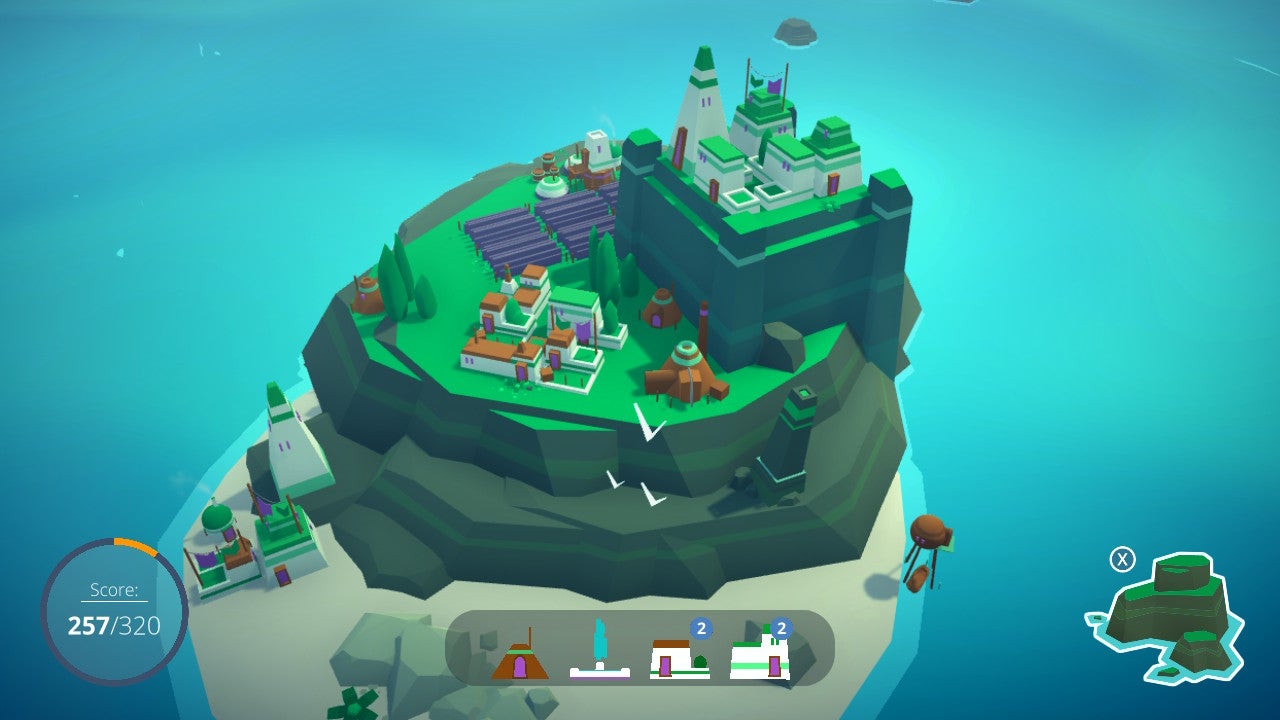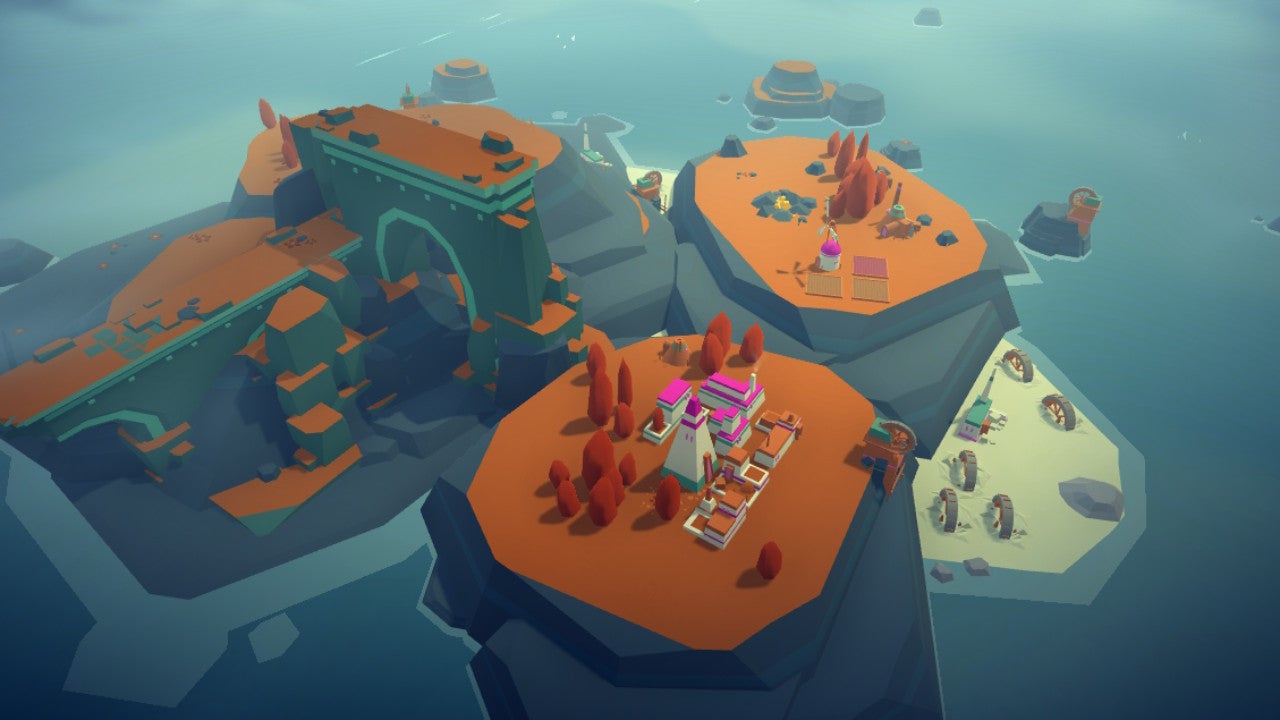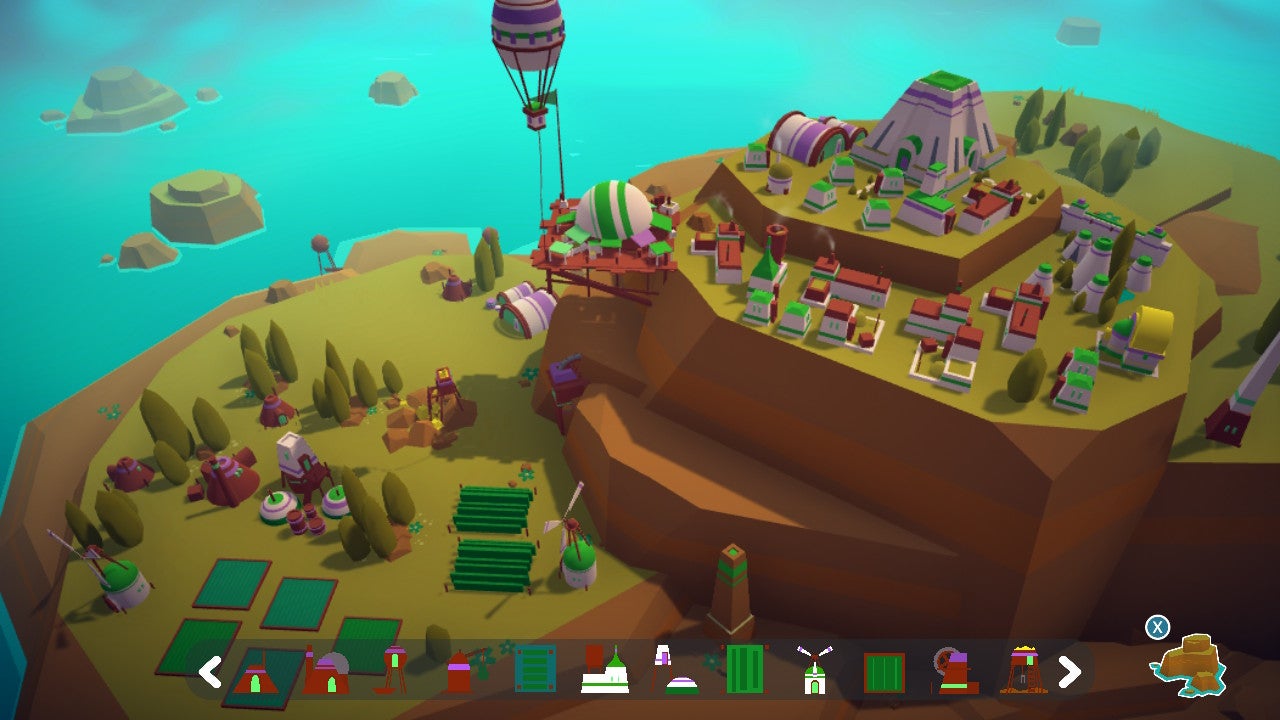Or rather, you should take it skating. I like to grab a brewery and sort of skim it over the landscape, like a skater describing dreamy arcs on the surface of a frozen pond. It’s capitalism - it’s potentially even empire-building - but at this stage it’s also speculative, a quiet thing of drooped eyelids and keen hearing. You are waiting for the land to speak to you. You are waiting for the land to tell you where the brewery should best be placed. Ultimately, I like to think of these early stages of Islanders, a city-building game like no other, as if I am dowsing. But that thought journey seems important in itself. Walking, skating, listening, dowsing: this is one of those magical games that is broad enough to be absolutely about what it claims to be about - building civilisations on a series of lonely islands - but can also serve as an analogy for numerous other things. How best to store different teas in a cupboard. How to entertain fractious kids of a long holiday. How to formulate an argument with rigour and a certain kindness, a certain willingness to have your mind changed by something you subsequently learn. (Granted, I was having a pretty cosmic playthrough when this one occurred.) What could be nicer? You’re moving breweries around because breweries like to be near certain things, like hop fields and seaweed farms and warehouses, but they don’t like to be near other certain things - namely, other breweries. It makes sense. A brewery needs easy access to things it can brew, but it shouldn’t have to deal with redundancy or competition. In Islanders, these proximities come down to points: you get points for proximity to the things the brewery likes, and you lose points for proximity to the things it doesn’t like. And while you are learning all this, internalising all this, you are best served by moving the brewery over the ground - skating, dowsing, listening to the rattle of potential points as they move past. It’s not just breweries that need to be given a tour. Islanders works by giving you an empty island, and then offering packs of themed buildings to choose from. Once you choose a pack, you have to hit a points target with the pieces it offers in order to unlock the chance to choose another pack. So a brewery pack might come with a brewery and a bunch of fields and hop fields - arrange them well, maximise the points, and you earn the right to do it all over again with a different pack, say lumber or bricks, or something for a growing city. Fail to earn enough points before you run out of pieces to place and it’s game over. Succeed and eventually you get to move to a bigger island and start the process once again. I have made this sound complicated, but that’s my clumsiness and eagerness to share a good thing. In reality it is pure simplicity. Make the most of each batch of buildings and you get more buildings to make the most of. Think about the proximities - the likes and dislikes of each building - and think about natural features like trees and rocks which might also fit into those likes and dislikes. Remember that a sandpit will need to be placed on sand, and that a lumberjack needs a source of wood to do their best. Remember that you can rotate buildings to squeeze them in where it might seem like they really don’t fit. Particularly useful in cities. And you’re off. The best thing about this is that you then look up and realise that you’ve built a civilisation without really thinking about it - or rather, without thinking about it in general, only in terms of the specifics. Maybe this is what it’s like: maybe Rome wasn’t built in a day, and wasn’t built by thinking about Rome, not at first, but by thinking about where certain bits of Rome should go and shouldn’t go. Maybe civilisation is working out where to put the laundry and where to do the cooking and everything else sort of emerges from that. And we’re off to the analogy side of things again. Play Islanders long enough and you’ll stop thinking about what kind of point it’s trying to make - are cities good or bad? Is the landscape purely just a resource? - and you’ll lead yourself into thinking about its parts, and what they remind you of, what they help you with when you’re perhaps trying to think of unrelated things a little differently. I don’t know what it is about strategy games, even gentle puzzley ones like this, but they can feel like therapy. They can clear the head like nothing else. Underlying all this, though, is the points system, which ultimately makes Islanders, like Dorfromantik, a game about a kind of economic excavation. What is the land - and your accruing choices - trying to tell you to make? Should you listen or try to fight against the places that geographic fate is leading you? Where will your various buildings and factories have their best fine chances for permanence, as the man once said? All of this was lovely on PC, and now it’s lovely on consoles. Without a mouse, and playing on Switch, you need to button and prod through your pack selections and building types - and the helpful presence of an undo button is a reminder that this is not quite as elegant as it was with a mouse - but the low-poly art style works very nicely on a smaller screen, the music box soundtrack is soothing, and the endless attraction of the next building, the next island, further east, further east, is as powerful as ever. Alongside highscore mode there’s a sandbox option, which ditches the rules but is surprisingly engaging. It’s the same game I loved on PC, then, but now I get to sit on the bed with the world in my hands, something I can peer down into as I ponder. As I ponder where to place the brewery. Over time the skating becomes less necessary, the rules of each building become internalised, and the game changes to one of a deeper understanding, perhaps even the desire to really shape things from the off. You leave dowsing behind and attend to the land in a different way. And yet the memory of that hesitancy remains - the land is in charge, really, and the rest of us must make do with what we can.



